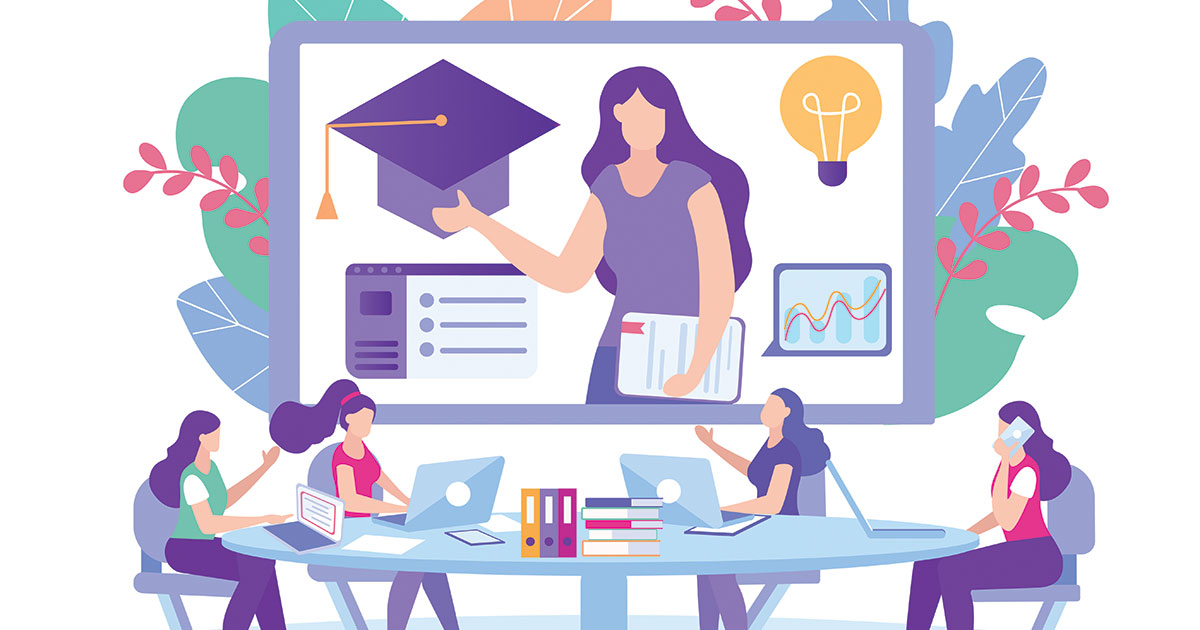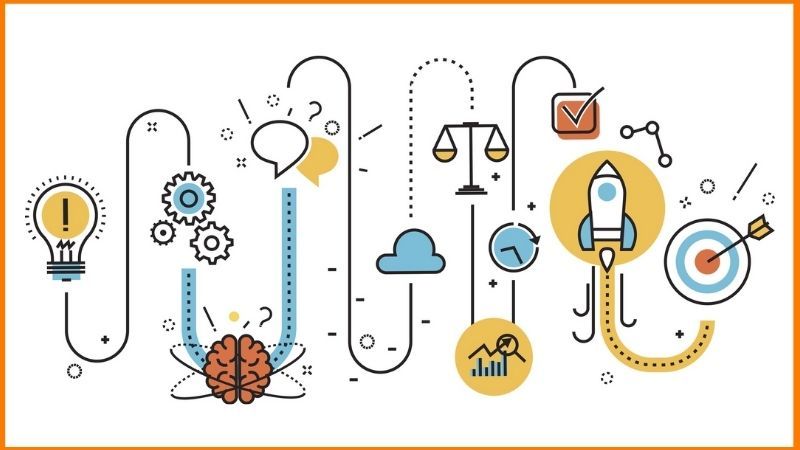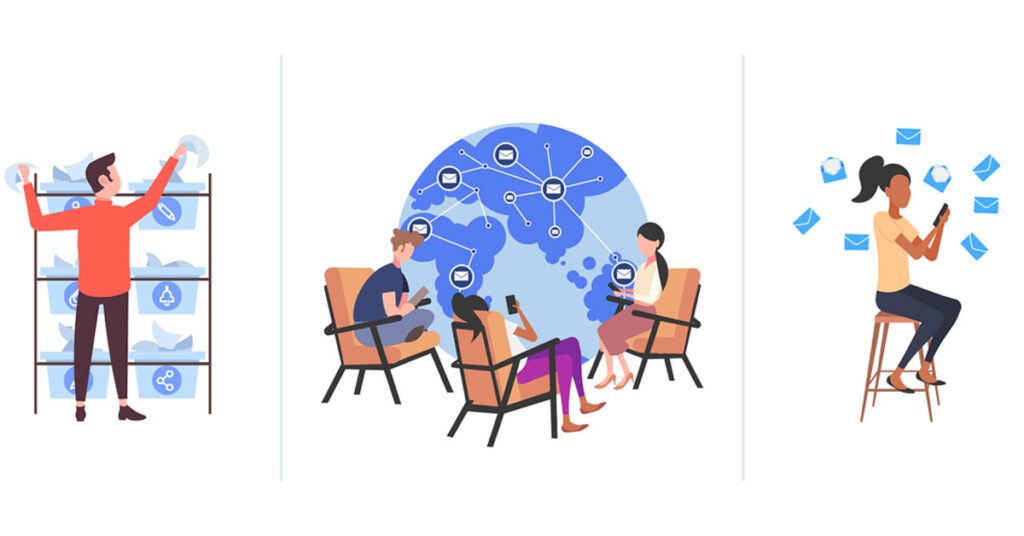Over the last three years, Catalystas Consulting has conducted a plethora of market studies, research, and scoping missions, and our teams have worked with incubators and start-ups in a variety of different contexts on behalf of clients such as the Dutch Ministry of Foreign Affairs, Netherlands Enterprise Development Agency (RVO) throughout the Sahel Region of Africa, and (I)NGOs such as SPARK in the Middle East. We have investigated the barriers, challenges, and opportunities that Micro, Small, and Medium-sized Enterprises (MSMEs) encounter, and examined how (M)SME programs and support systems can contribute to the growth of these enterprises. According to the World Bank, SMEs worldwide “account for more than 50% of jobs, and contribute more than 35% of Gross Domestic Product (GDP) in many emerging markets.” Recognized by the United Nations General Assembly 2030 Agenda in Sustainable Development Goal 8, SME growth is key to economic development, especially in developing countries. This goal sets out ‘to promote development-oriented policies that support productive activities, decent job creation, entrepreneurship, creativity, and innovation, and encourage formalization and growth of micro-, small-, and medium-sized enterprises including through access to financial services.’ The potential for such immense contributions by (M)SMEs to economic development is the reason why international and national development actors alike create entrepreneurship programs and institutions, develop (higher) education programs that teach entrepreneurship skills and theory, and create financial support for small and medium businesses.

Creative Commons License: Education and Career News
Each of these programs support entrepreneurs at a different stage of their journey. For example, incubators support young enterprises that have just started to grow, while accelerators help galvanize existing enterprises with a short history to grow to the next level in their business potential. All of these programs are located in their unique context, interacting with the entrepreneurship environment in a unique way. In our work over the last years, however, Catalystas teams have experienced certain patterns that repeatedly emerge. A barrier that appears time and again, across all different contexts, is the difficulty that women, youth, and migrants – particularly refugees, and IDPs – face in accessing financial resources to support and grow their businesses. Each of these target groups is considered a risky investment by financial institutions, predominantly banks, albeit for different reasons.

Creative Commons License: Startup Talky 2021.
Youth face extra burdens due to their young age often immediately being associated with a lack of work and entrepreneurship experience, a limitation seen as decreasing their chances of setting up a successful business. Additionally, our team has found that businesses in new or emerging sectors, like tech or information technology, are less likely to successfully obtain funding because of the higher perceived risk. In practical terms: these sectors require human capital rather than materials or machines that can serve as collateral when applying for a loan – and in the case of youth, their short careers have often yet to provide them with sufficient savings – or proof of entrepreneurial skills – to serve as collateral either, which makes it more difficult for them to qualify as a reliable investment. Youth also face the sociocultural challenge of not being taken seriously as professionals and business owners by elder members of their communities as well as institutions. They are often prevented from borrowing from both formal and informal lending mechanisms, including family and friends who often push them to spend any loan or investment they do receive on supporting loved ones rather than investing – or reinvesting – in their businesses, often resulting in defaulting on loans or even failed business endeavors, both of which can impact future abilities to qualify for formal loans and investment. However, youth play an extremely important role in stimulating economic development and creating innovative solutions; not only are they immersed in the communities they design solutions for, resulting in a clearer understanding of the gaps in need of filling, youth are also generally the first to adopt new technologies and practices as they emerge, enabling them to identify new approaches and applications when it comes to problem-solving.

Similar to youth in their understanding of community needs and ability to create innovative solutions, women’s potential contributions to the economy and society overall are all too often overlooked. Women in developing countries are often less educated than their male counterparts, and on top of that, they face cultural barriers to economic empowerment in many contexts. According to recent research about cultural factors and gender roles in entrepreneurship, the social norms and customs defining appropriate behavior for women are related to caring and housework, and for men they are related to monetary support for the family, resulting in the positioning of men as an ideal entrepreneur over women. Additionally, in some contexts, women are not the holders of property or land, and must defer to their husbands (or fathers/male relatives), who are the officially recognized owners of land and property in patriarchal legislation, presenting an additional barrier to providing ‘acceptable’ collateral. Additionally, women are often active in sectors that are regarded as riskier, or are dominated by informal jobs. Agriculture, for example, is a sector that is highly dependent on weather and environmental circumstances (high risk), and women working in agriculture often do not register their businesses (informality). When it comes to the environments our teams have analyzed in countries such as Mali, Burkina Faso, Benin, and Cote d’Ivoire, we have also identified a major difference in structural barriers when it comes to women living in rural vs urban settings. Especially in Western African contexts, there is often no shortage of incubators, accelerators, and training programs for women (and youth) entrepreneurs, and this lends credence to the idea that there are plenty of support structures in place. However, the majority of these programs and structures are limited to urban centers – sometimes even just the capital city – resulting in the unconscious exclusion of women living outside the cities, who either cannot travel due to their family and work demands, or have no way of finding information about the support available to them. While some programs are run in more rural areas, they generally center on small communities and encourage small scale funding through informal community-based lending models, such as Village Savings and Loan Associations (VSLAs), which – while highly beneficial for small communes and collectives – does not generally provide enough capital for business growth beyond immediate local needs.
Similar to youth in their understanding of community needs and ability to create innovative solutions, women’s potential contributions to the economy and society overall are all too often overlooked. Women in developing countries are often less educated than their male counterparts, and on top of that, they face cultural barriers to economic empowerment in many contexts. According to recent research about cultural factors and gender roles in entrepreneurship, the social norms and customs defining appropriate behavior for women are related to caring and housework, and for men they are related to monetary support for the family, resulting in the positioning of men as an ideal entrepreneur over women. Additionally, in some contexts, women are not the holders of property or land, and must defer to their husbands (or fathers/male relatives), who are the officially recognized owners of land and property in patriarchal legislation, presenting an additional barrier to providing ‘acceptable’ collateral. Additionally, women are often active in sectors that are regarded as riskier, or are dominated by informal jobs. Agriculture, for example, is a sector that is highly dependent on weather and environmental circumstances (high risk), and women working in agriculture often do not register their businesses (informality). When it comes to the environments our teams have analyzed in countries such as Mali, Burkina Faso, Benin, and Cote d’Ivoire, we have also identified a major difference in structural barriers when it comes to women living in rural vs urban settings. Especially in Western African contexts, there is often no shortage of incubators, accelerators, and training programs for women (and youth) entrepreneurs, and this lends credence to the idea that there are plenty of support structures in place. However, the majority of these programs and structures are limited to urban centers – sometimes even just the capital city – resulting in the unconscious exclusion of women living outside the cities, who either cannot travel due to their family and work demands, or have no way of finding information about the support available to them. While some programs are run in more rural areas, they generally center on small communities and encourage small scale funding through informal community-based lending models, such as Village Savings and Loan Associations (VSLAs), which – while highly beneficial for small communes and collectives – does not generally provide enough capital for business growth beyond immediate local needs.
Similar to youth in their understanding of community needs and ability to create innovative solutions, women’s potential contributions to the economy and society overall are all too often overlooked. Women in developing countries are often less educated than their male counterparts, and on top of that, they face cultural barriers to economic empowerment in many contexts. According to recent research about cultural factors and gender roles in entrepreneurship, the social norms and customs defining appropriate behavior for women are related to caring and housework, and for men they are related to monetary support for the family, resulting in the positioning of men as an ideal entrepreneur over women. Additionally, in some contexts, women are not the holders of property or land, and must defer to their husbands (or fathers/male relatives), who are the officially recognized owners of land and property in patriarchal legislation, presenting an additional barrier to providing ‘acceptable’ collateral. Additionally, women are often active in sectors that are regarded as riskier, or are dominated by informal jobs. Agriculture, for example, is a sector that is highly dependent on weather and environmental circumstances (high risk), and women working in agriculture often do not register their businesses (informality). When it comes to the environments our teams have analyzed in countries such as Mali, Burkina Faso, Benin, and Cote d’Ivoire, we have also identified a major difference in structural barriers when it comes to women living in rural vs urban settings. Especially in Western African contexts, there is often no shortage of incubators, accelerators, and training programs for women (and youth) entrepreneurs, and this lends credence to the idea that there are plenty of support structures in place. However, the majority of these programs and structures are limited to urban centers – sometimes even just the capital city – resulting in the unconscious exclusion of women living outside the cities, who either cannot travel due to their family and work demands, or have no way of finding information about the support available to them. While some programs are run in more rural areas, they generally center on small communities and encourage small scale funding through informal community-based lending models, such as Village Savings and Loan Associations (VSLAs), which – while highly beneficial for small communes and collectives – does not generally provide enough capital for business growth beyond immediate local needs.

Members of society who are considered more vulnerable similarly experience exceptionally higher barriers to accessing finance.
Often, migrants – and especially refugees and IDPs – also run into problems related to collateral, which is essential to prove the creditworthiness of the entrepreneur or the business when applying for loans. The reasons for not being able to provide collateral might be different, but the result is the same as for women and youth: a business with less cash at their disposal can invest less, and therefore does not grow as fast as a business with financing. In some cases, such as with refugee or IDP entrepreneurs, business owners may have lost their property due to their sudden move – especially when it comes to those fleeing from conflict or natural disaster. Should they still possess this property, it is also possible that they lack a formal status or do not have official legal documentation to prove their identity or ownership of this property or land, and therefore might not be able to use their possessions as collateral. For these reasons, refugees and IDPs are often active in the informal sector, which again prevents them from accessing formal loans. All of this, combined with a disrupted social network, makes it difficult to start or grow a business. Often compounding the case of migrants even further, is that in many instances, entrepreneurs still have family and loved ones in dire circumstances, who may not have been able to leave the situation spurring migration. In such cases, any profit from businesses started is often sent back to family and friends in need, preventing migrant entrepreneurs from being able to effectively reinvest in their businesses for natural growth, and signaling a risky investment for formal institutions who see no growth to measure.
The Covid-19 pandemic has further exacerbated these constraints, and previously thriving businesses have been struggling to survive financially during the last years. Considering all of the above, it is understandable that financial institutions see these target groups as risky – even more so than in ‘normal’ circumstances. At the same time, there is a wealth of opportunities that remain untapped: youth, women, and IDPs or refugees starting businesses are often the most innovative and are well placed to create new ideas to address the needs of these groups and their communities. Economic participation of these groups also enables them to take ownership and improve their position – and creates jobs for others at the same time. This is especially welcome, considering that the world population is growing, and to keep up with this population growth, 600 million new jobs will need to be created in the next decade. Indeed, Africa’s youth bulge in particular, with an estimated 60% of the continent’s population under the age of 25 as of 2019, shows that the economic inclusion of youth – and especially young women and young migrants – will be critical to the continued functioning and growth of the global economy.

©Hurca! adobe stock 2021
Incubators, accelerators, and entrepreneurship support programs are at the forefront of this development, supporting entrepreneurs in fine-tuning their business ideas and taking the first steps in establishing a successful business or effectively advancing beyond the growing pains of the start-up phase, often trying to find ways to connect them to financing. With combined efforts, these organizations and programs can make a change. Catalystas has met and worked with numerous organizations trying to realize change, and our experts have identified a number of potential avenues:

Ultimately, our work on economic development across Africa and the Middle East continues to demonstrate that the conscious inclusion of women, youth, and IDPs and refugees (and all migrants) is key to unlocking exponential economic growth and prosperity. While there remain many hurdles to overcome, there are clear paths that donors, organizations, and all relevant stakeholders can follow in order to begin breaking down these barriers and strengthening the systems that encourage true entrepreneurial ambition. For more information on these paths, and how Catalystas can help your organization in charting them, please reach out to one of our experts – we’d love to help.
Judith is a passionate development and humanitarian professional with more than eight years of experience working for actors ranging from the Netherlands Ministry of Foreign Affairs to INGOs, where she has worked on program design and development, policy development, and program management. She is an expert in the fields of improved business development, access to the labor market through higher education, humanitarian aid, and justice and security governance.
Holding a MSc in Conflict Resolution and Governance at the University of Amsterdam as well as a BSc in Political Science and a BA in Middle Eastern Studies from Leiden University, her experience focuses on fragile regions in the Middle East, South East Asia, and Sub-Saharan Africa, where she has lived and worked over the past decade for various NGOs.
Judith has extensive experience in developing and initiating projects, including scoping potential partners, finding a program’s unique selling point, and grant-writing. When it comes to project implementation, Judith is highly passionate about working with those actors on the ground who can make a real difference.
Aviva is a development and political stability specialist with over eight years of experience working in and on the Middle East and North Africa (MENA), Sub-Saharan Africa, and South & Southeast Asia. She focuses on the intersection of peacebuilding, empowerment, and gender equity, with an emphasis on interweaving growth and sustainability throughout social, political, and economic development. Aviva has experience in program development, implementation, situational analysis, and strategic planning in various contexts, including highly volatile areas.
Holding a Master’s in Conflict Studies and Human Rights from Utrecht University in the Netherlands, she has worked with organizations large and small, including Search for Common Ground, SPARK, the Netherlands Entrepreneurship Development Agency (RVO), the Dutch Entrepreneurial Development Bank (FMO), and the Nobel Peace Prize-winning Organisation for the Prohibition of Chemical Weapons (OPCW).
A lover of the written word, Aviva is an expert in writing and communications and embraces the challenge of creating content for a variety of audiences – from grant proposals to awareness raising campaigns.
We built Lysta as an answer to one of our own problems: the need to quickly assemble teams of experts across various subject matter, geographic, linguistic, and thematic areas for projects and proposals as they arise. We quickly realized that we were not the only ones facing this challenge! With the speed that development projects require hiring, turnaround, and technical insights, we see first hand how helpful it is to have a ready-made database of vetted experts to call on.
For existing and potential Clients, you can access all consultant full profiles by signing up here as a client for free.
For consultants, adding your profile to Lysta means jumping to the top of the list for our clients in recruitment processes. We do the heavy lifting: the CV reviews, interviews, vetting, and personnel management; so when our clients come to us, they know they’re hiring someone they can trust to deliver high quality, timely results. Click here to add your profile for review.
We’re proud to be a link in the chain that connects the best of the best – don’t hesitate to reach out and see how you can put Lysta to work for you!